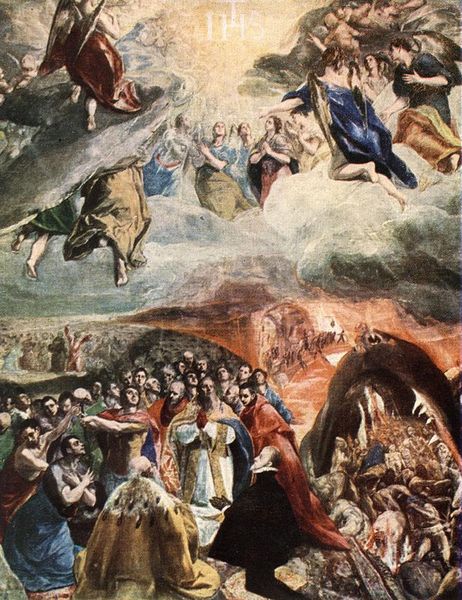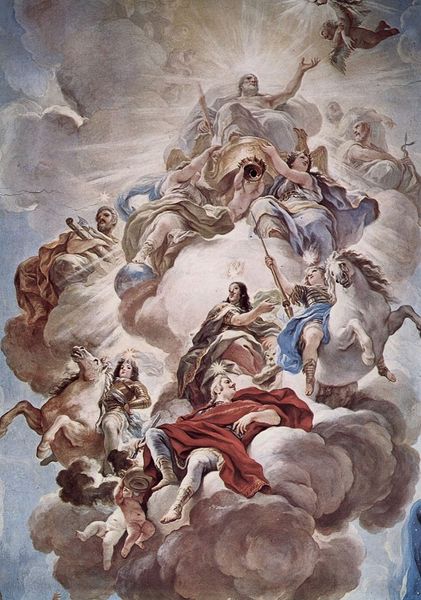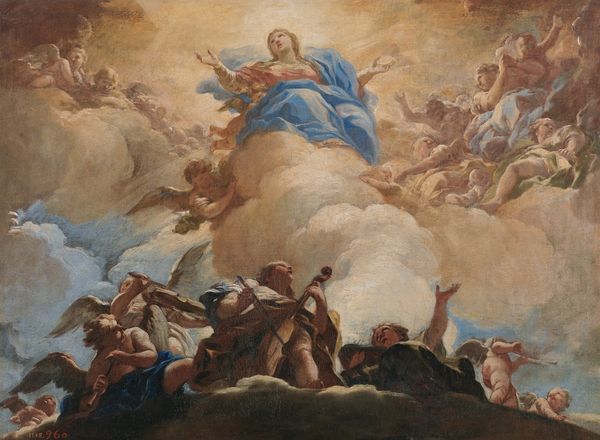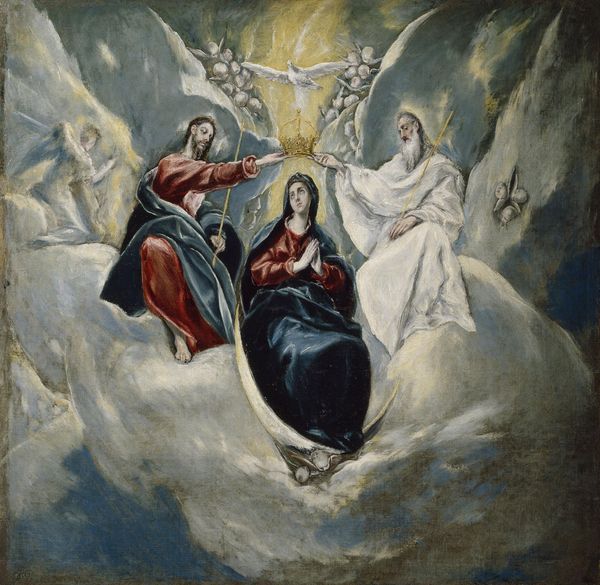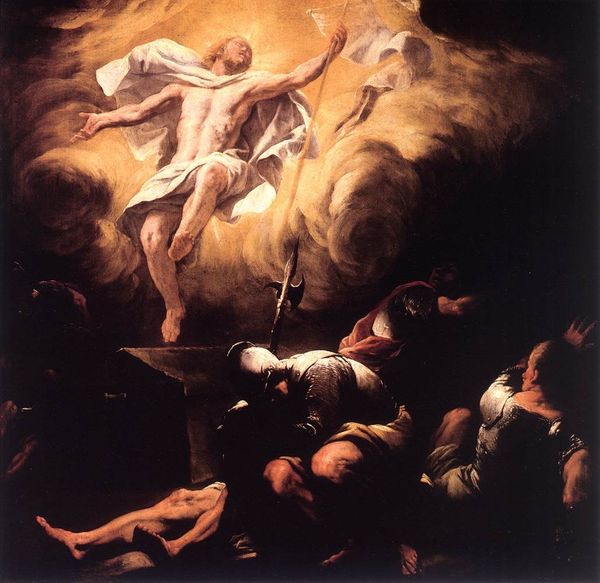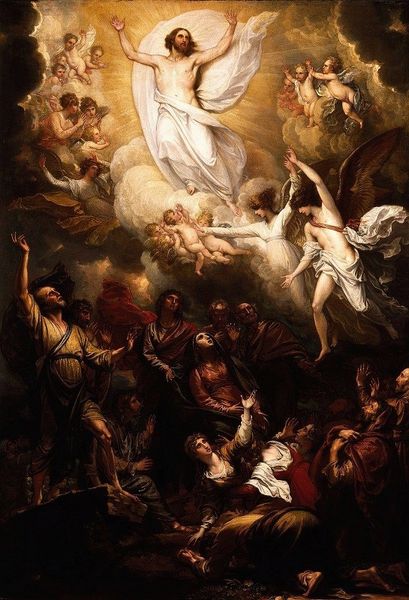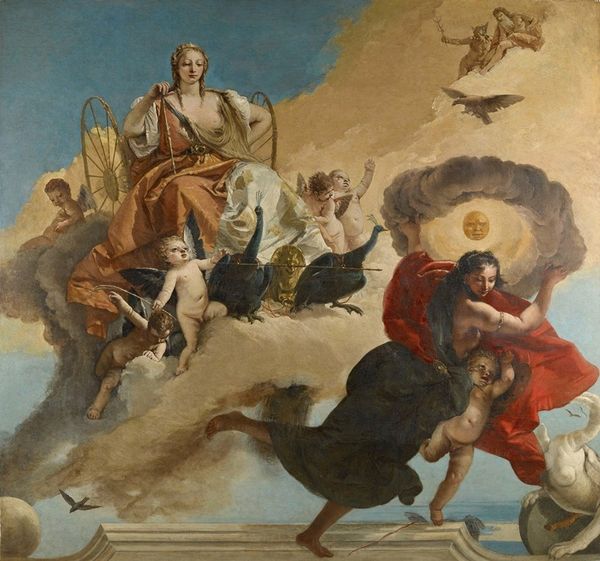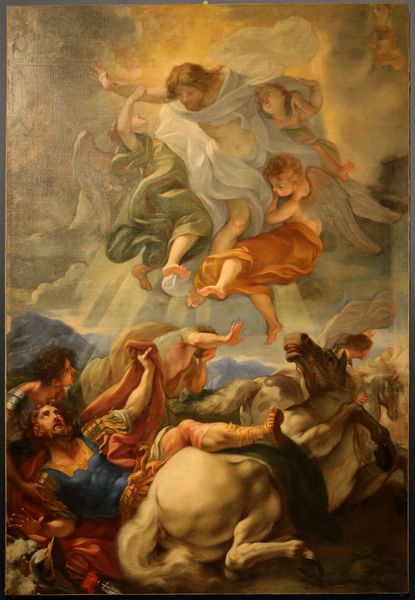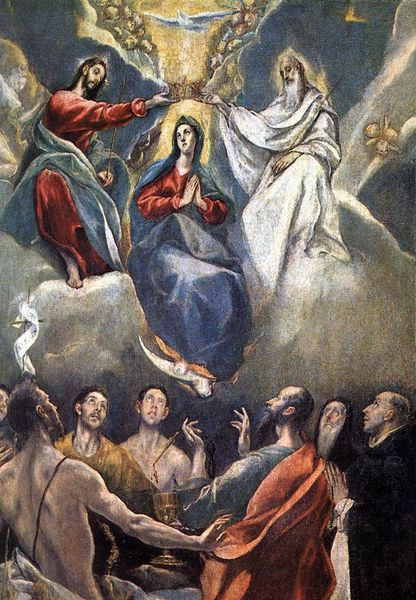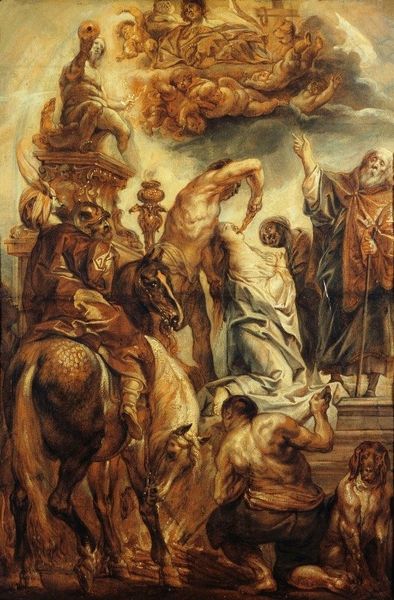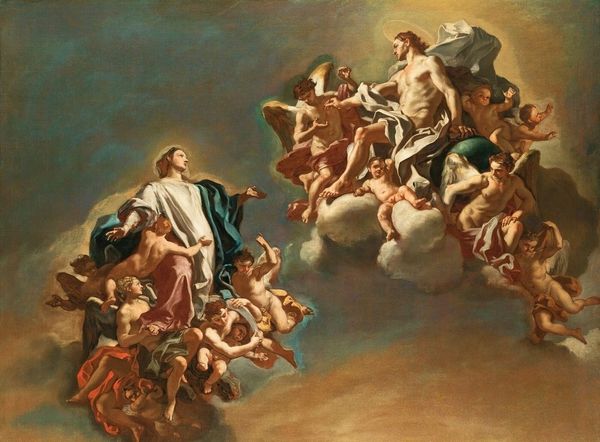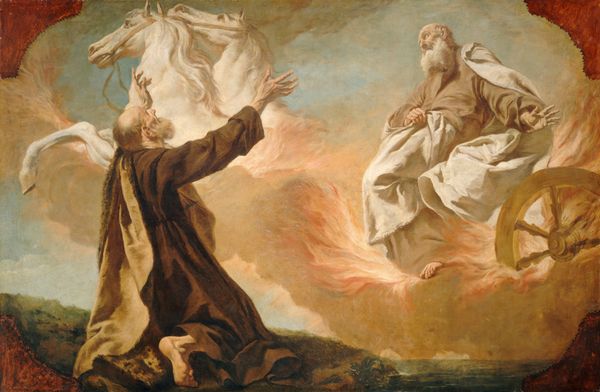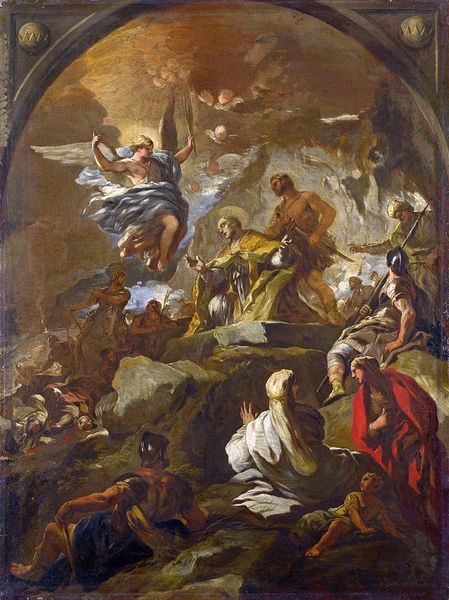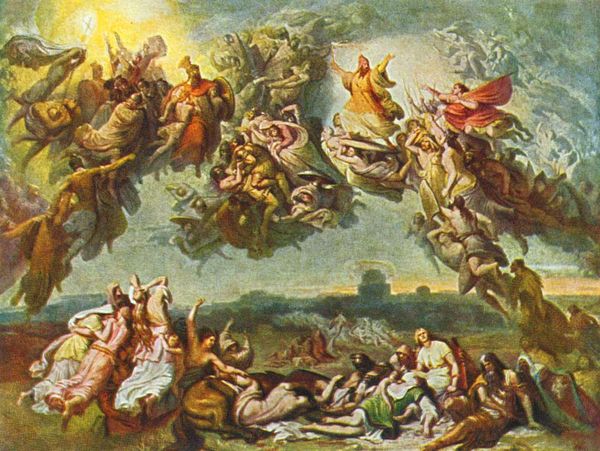
painting, oil-paint, mural
#
painting
#
oil-paint
#
landscape
#
mannerism
#
figuration
#
11_renaissance
#
oil painting
#
history-painting
#
italian-renaissance
#
mural
Copyright: Public Domain: Artvee
Editor: So, this is "Count Orgaz’ Funeral" by El Greco. It's an oil painting, and the way he handles figures is remarkable. What catches my eye is how the earthly and celestial realms seem to coexist on the same canvas. What do you see in this piece? Curator: Primarily, I see a fascinating exercise in Mannerist aesthetics. Observe the composition: two distinct zones, earthly below and divine above, yet interconnected through the swirling gestures and elongated figures characteristic of El Greco's style. Consider the light. How does the contrast between the darker, earthbound figures and the ethereal illumination above impact your reading of the artwork? Editor: I notice the figures in the upper portion are brighter and seem weightless. Curator: Precisely. And note how the figures below are compressed into a relatively shallow space, almost a frieze. This spatial compression, combined with the upward thrust of the composition, directs our gaze toward the celestial sphere. What effect does this have on the overall dynamic of the painting? Editor: It feels like all the action is directed upwards. The focus on the vertical lines is really strong. Curator: Indeed. El Greco manipulates the formal elements—line, light, space—to create a sense of spiritual ascension, almost destabilizing our perception. This challenges the Renaissance emphasis on balance and harmony, leaning instead toward an emotionally charged and subjective experience. Editor: It’s interesting to think of the formal aspects contributing to such a dramatic sense of the scene. Thanks. Curator: Indeed. A study in visual tension, balance and form; such techniques make us understand that there is far more to this canvas than meets the casual eye.
Comments
No comments
Be the first to comment and join the conversation on the ultimate creative platform.
